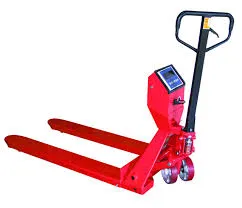


The Versatility of a 2-Ton Hanging Scale
In various industries and applications, precision measurement plays a critical role in ensuring efficiency, safety, and accuracy. One tool that exemplifies this is the 2-ton hanging scale. This device, designed for weighing heavy objects, has become indispensable across a range of fields, from shipping and logistics to agriculture and construction. In this article, we will explore the composition, advantages, applications, and the technological advancements that make the 2-ton hanging scale a vital asset in the modern world.
Composition and Design
A 2-ton hanging scale typically consists of a robust hook or clamp system for securing the object being weighed, a sturdy housing that protects the internal mechanisms, and an easy-to-read display that shows the weight measurement. The scale often incorporates high-strength materials such as steel or aluminum, allowing it to withstand the significant forces associated with heavy loads while ensuring portability.
One of the hallmark features of a quality hanging scale is its ability to provide precise measurements. Many models use a strain gauge or load cell technology to produce accurate readings. The setup generally involves a simple calibration process, which ensures reliable results every time the scale is used. The portability of a hanging scale is another significant advantage; being lightweight and easy to transport allows users to measure weights in various locations without the need for bulky equipment.
Advantages of a 2-Ton Hanging Scale
The primary advantage of a 2-ton hanging scale is its capacity to weigh objects up to 2 tons (approximately 1,814 kilograms), making it suitable for a wide range of applications. This scale can be invaluable in environments where heavy materials need to be moved or accurately measured. For instance, in construction, accurately weighing materials such as steel beams or heavy machinery components is crucial for safety and structural integrity.
Another advantage is the convenience of using a hanging scale. Unlike traditional static scales that require a flat surface and may be fixed in one place, a hanging scale can be employed in numerous settings. Users can weigh items with ease, whether they are in a warehouse, on a truck, or at a construction site. Additionally, many models come equipped with additional features such as data logging and connectivity options, allowing users to track and analyze weight data more effectively.
Applications Across Industries

The applications of a 2-ton hanging scale are extensive. In the logistics and shipping industries, it is used to measure the weight of cargo and ensure compliance with transportation regulations. Transporting goods that exceed weight limits can result in penalties, so adhering to guidelines is vital.
In agriculture, farmers and producers utilize hanging scales to weigh bulk products like livestock or harvested crops, enabling them to make informed decisions about pricing and inventory management. Similarly, businesses in the manufacturing sector can use these scales to monitor the weight of raw materials to maintain quality control during production processes.
Moreover, in the fishing industry, these scales provide a convenient way for fishermen to weigh their catch, which is essential for both regulatory compliance and market sales. The food industry also benefits, as precise measurement is crucial in ensuring quality standards are upheld.
Technological Advancements
With the advent of technology, modern 2-ton hanging scales incorporate numerous advanced features that enhance their functionality. Many scales now come equipped with digital displays, backlighting for use in low-light conditions, and wireless connectivity options, allowing for remote monitoring and data transfer.
Innovation does not stop at the scales themselves; associated software programs can analyze and track data over time, helping businesses optimize their operations based on weight measurements. This data-driven approach leads to increased efficiency and better decision-making across various sectors.
Conclusion
The 2-ton hanging scale serves as a critical tool in various industries, combining portability, accuracy, and versatility. Its design and technological enhancements have evolved to meet the demands of modern applications, ensuring that accurate weight measurement remains accessible and straightforward. As industries continue to innovate, the essential role of the hanging scale will undoubtedly persist, proving its value in our increasingly complex world. Whether you are in agriculture, construction, logistics, or manufacturing, a 2-ton hanging scale offers the reliability and precision necessary for today’s operations.



